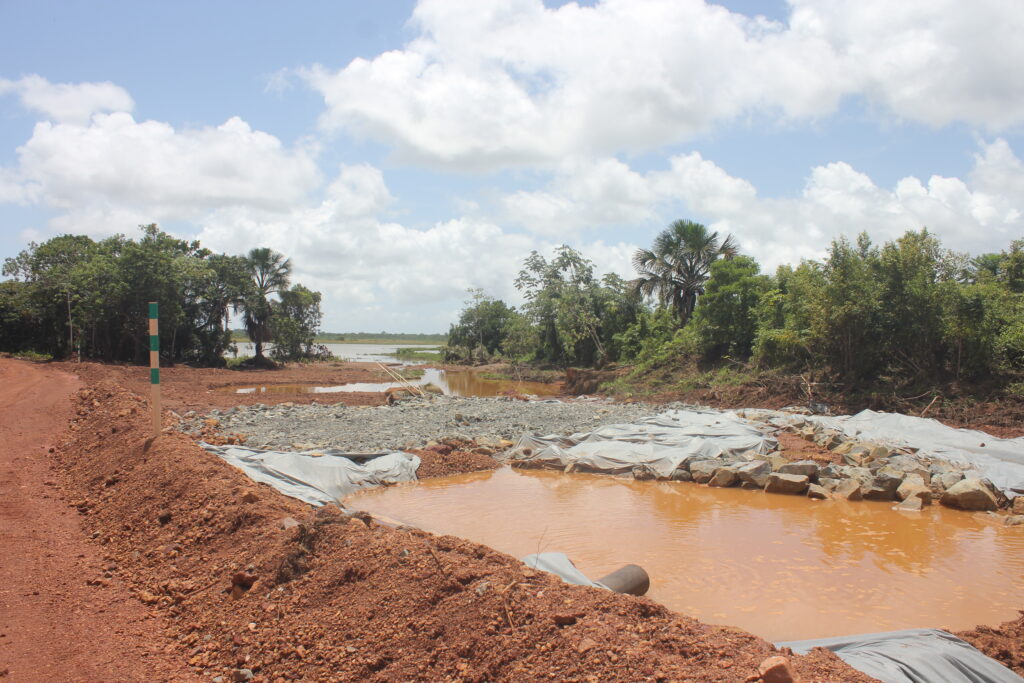Note: Equinox Gold wants to criminalize those who fight for water
The mining company Equinox Gold tries to prohibit the affected people to carry out political demonstrations on the road connecting Aurizona to Godofredo Viana (MA); MAB repudiates the attempt to criminalize the fight for rights in the region
Publicado 09/07/2021 - Actualizado 21/07/2021
The Movement of People Affected by Dams (MAB) has announced its rejection of the conduct of the Canadian company Equinox Gold, which, through legal proceedings, through the curtailment of freedom of expression and free demonstration, seeks to intimidate and criminalize the member of the MAB, Dalila Alves Calisto, as well as local leaders, Jonias Pinheiro, Daiane Lima, Maria Valdiene Teixeira and Maria Aldineia Teixeira, human rights defenders in Aurizona, district of the municipality of Godofredo Viana (MA)for participating in protests demanding the human right to clean water.

The mining company in its process petitioned the Maranhão court to prohibit those affected from holding demonstrations on the road that connects Aurizona to Godofredo Viana. The company accuses the protests carried out by those affected and affected on 28 April 2021 as illegal and arbitrary acts that violate the company’s constitutional rights. The protest to which the mining company refers lasted more than 36 hours and had dozens of people, affected from Aurizona, who demonstrated charging the mining company access to drinking water, on a regular and high-quality basis for families and a negotiating table for those affected, MAB, Public Defender, Equinox Gold mining company and municipal and state governments to discuss the emergency and historical problems of the population of Aurizona caused by the operation of the mining company in the region.
The interruption of water supply in Aurizona occurred after the break of the Lagoa do Pirocaua dam, which occurred on 25 March this year, which brought serious social and environmental impacts, among them the contamination of the reservoir Juiz de Fora that supplied all the population of the district. In the document, the mining company accuses the protesters themselves of blocking the delivery of water to the residents of Aurizona, in an attempt to blame them for the lack of water in the community. The right to information and participation; a healthy environment; freedom of assembly, association, and expression, as set out in the report of the Human Rights Council (CDDPH) of November 2010 [1], have been systematically violated by Equinox Gold. It is unacceptable that in the face of serious environmental crimes and allegations of human rights violations, the company should remain unpunished. The fight for the right to water in Brazil cannot be treated as a crime. According to the MAB, the miner’s attempt to criminalize the popular struggle and the organization of those affected in the region is clear.
The current pattern in Brazil of implementation of capital projects, such as mining, provides recurrently serious violations of human rights and attacks on populations struggling for improvement, which reflects the context of violence to which those affected and affected are subjected in the territories where such projects are developed. In the case of Aurizona, this practice of intimidating, criminalizing, disqualifying, and pursuing local leaders is already commonplace and systematic
Since the break of the mining dam, several agreements have been signed by the company, which continues without complying with them. Since then, most homes no longer have permanent water in the taps. There are days when water does not arrive in the residences and in other cases the water that arrives possesses a black coloring and a strong odor. For the MAB, this action by the mining company Equinox Gold is another attack on the population of Aurizona, which already suffers from the denial of jobs, explosions that generate cracks in their homes, the breaking of the dam, and the lack of water in the community.
[1] MAB, Movement of People Affected by Dams. Violation of Human Rights in the Construction of Dams – summary of the Report of the Special Commission “Affected by Dams” Council for the Defense of Human Rights. Available in:

